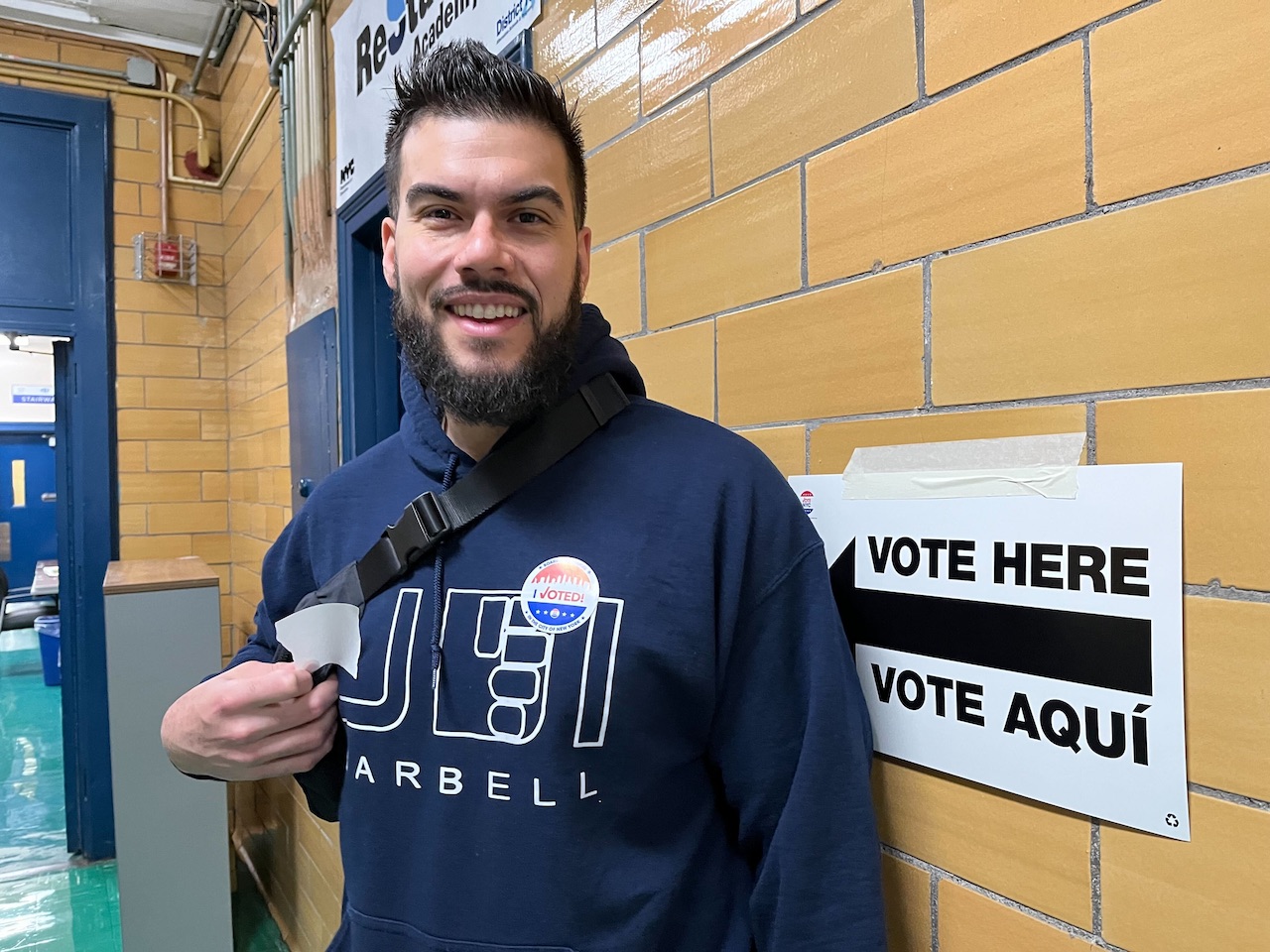Voting is a privilege most Americans get when they turn 18. But Mott Haven resident Patrick Stephens had to wait three decades longer than most.
“I took the train all the way from the Bronx to Brooklyn just to make sure I voted early,” said Stephens, 49, who cast his first-ever ballot earlier this week in East Flatbush, where he lived before moving back to Mott Haven. He lost his right to vote after he was incarcerated for a second-degree murder conviction in his mid-20s.
Stephens went to the polls on Tuesday and voted with his 26-year-old son and received a standing ovation as he cast his ballot.
“I feel like an adult,” he said, moments after voting.
While Stephens contributed only one vote in Tuesday’s midterm election in New York, his participation shows the substantial gains made by voting rights advocates in recent years to restore voting rights to the nearly 4.6 million Americans who cannot vote due to prior felony convictions.
In 2021, New York passed legislation to allow people to vote while on parole for a felony conviction. The change reinstated voting privileges for an estimated 35,000 New Yorkers. Advocates say these reforms will lead to greater civic participation, which is critical for formerly incarcerated people’s rehabilitation and reintegration into communities.
The change has prompted some prison reform advocates to mobilize a voting block of formerly incarcerated people. Victor Pate from New Yorkers for Full Restoration of voting rights has mobilized and registered potential voters.
Disenfranchisement has historically been used to reduce the voting power of Black communities, Pate said. Following the Reconstruction era in the late 1800s, Southern states implemented barriers to voting that included poll taxes and passing literacy or civic exams.
It wasn’t until President Lyndon Johnson signed the Voting Rights Act of 1965 that conditions started to improve. By the end of that year, a quarter of a million new Black voters were registered.
“What we have now are the vestiges of slavery and Jim Crowism on a different level,” Pate said.
Pate has registered voters on Rikers Island, providing education about what is on the ballot and the importance of civil engagement.
“We have to hopefully be able to encourage that population of people who don’t engage civically to engage civically and explain the benefit of participation,” Pate said.
A bill drafted by prisoners that was sent to NY State Senator Julia Salazar, from the Sing Sing state prison would educate individuals scheduled to be discharged within 12 months. The Reentering Citizens Civic Engagement Act, sponsored by Sen. Robert Peters, and State Rep. Sonya Harper, would teach them about voting rights, simulations of voter registration, election and democratic process amongst other things.
Washington D.C, Maine and Vermont are the only states and districts that allow incarcerated people to vote in prison. In the other 48 states, people lose their right to vote while in prison. But in 19 of those states, individuals can eventually regain the ability to vote. In nine other states, such as Mississippi, Wyoming and Florida, people lose the right to vote for life.
Nicole Porter, who works at the Sentencing Project, a nationwide criminal justice reform nonprofit, said strict punishments such as disenfranchisement have been ineffective at reducing crime.
“If mass incarceration worked, why is crime going up?” she said. “People who are concerned about crime should focus their attention on evidence-based solutions and practices known to reduce contact with the criminal legal system in the first place.”
Alexander Hall, 38, also represents the changes won by voting advocates like Porter and Pate. Hall, who spent 16 years in prison for a manslaughter conviction, cast a vote at 6:30 on Tuesday morning at the Bronx’s Mott Haven Community High School before heading to work.
Hall said formerly incarcerated people can “fix the system” by voting. The governor’s race in New York has largely been defined by tough-on-crime messaging from Republican candidate Lee Zeldin, who has promised to roll back recent criminal justice reforms in New York. Through his vote, Hall can support changes to decrease America’s prison population.
“I just don’t wanna see more people in prison,” Hall said, “and I don’t want to see us shift back to a place where communities are criminalized.”
Editing by Wyatt Stayner.

